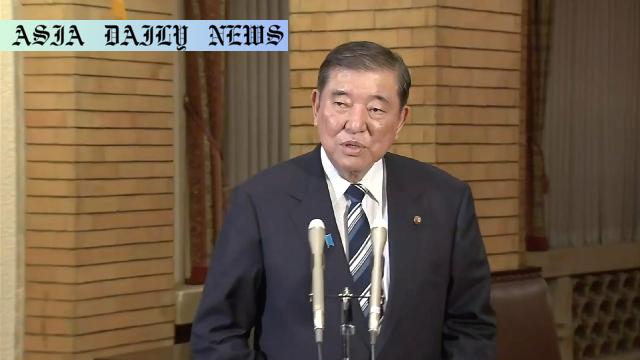Tariffs – Japanese PM Ishiba Shigeru is set to discuss global issues and tariffs with US President Trump at the G7 Summit.
Japanese PM Ishiba Shigeru to discuss tariffs with US President Donald Trump at G7 Summit.
G7 leaders to address critical global issues, including the Middle East conflict, Ukraine invasion, and global economy.
Japanese negotiators and US officials held pre-summit discussions on possible agreements.

G7 Summit: A Stage for Critical Global Matters
The G7 summit continues to be a pivotal forum for addressing pressing global challenges. This year, Japanese Prime Minister Ishiba Shigeru aims to capitalize on this vital platform to negotiate on pressing matters, particularly tariffs, with US President Donald Trump. Their planned meeting underscores the importance of bilateral relations amid a backdrop of economic uncertainty.
Set to be held in Canada, the summit is expected to bring together world leaders to discuss a range of subjects, from ongoing geopolitical conflicts to the fragility of global economic markets. For Japan, the focus is not only on protecting its interests within the global trade framework but also on reinforcing the unity and purpose of the G7.
Pre-Summit Groundwork Between Japan and the US
Before the much-anticipated Ishiba-Trump dialogue, negotiators from both nations worked diligently over the weekend to lay the groundwork for productive talks. Japan’s chief tariff negotiator Akazawa Ryosei engaged in intensive remote discussions with US Commerce Secretary Howard Lutnick. Although the details of these preliminary negotiations remain sparse, they demonstrate both sides’ determination to ensure tangible outcomes at the summit.
Economic strategies and agreements on tariffs stand central in these discussions. As concerns regarding protectionism and trade imbalances escalate globally, Japan and the US are attempting to balance competing national interests with broader international cooperation.
Multilateral Dialogues for Broader Unity
Beyond the bilateral meeting with President Trump, PM Ishiba is also expected to meet several other global leaders on the sidelines of the summit. These include his first in-person interaction with South Korean President Lee Jae-myung and Ukrainian President Volodymyr Zelenskyy. Such meetings provide further opportunities to boost regional cooperation and address key geopolitical concerns.
Ishiba’s commitment to fostering peace, stability, and international understanding aligns well with the G7’s overarching goal of promoting unity and coordinated action in solving international crises. His advocacy for strengthening the G7’s collective voice is a reminder of the critical role that multilateral diplomacy plays in today’s interconnected world.
The Broader Context: Key Global Issues
The G7 summit is not confined to discussions on tariffs or trade alone. Global leaders are expected to address numerous geopolitical and economic concerns, including the ongoing conflict in the Middle East, Russia’s invasion of Ukraine, and global economic stability. Each of these issues has far-reaching implications that the G7 hopes to tackle through coordinated policies and collaborative efforts.
With global stability hanging delicately in balance, the proceedings and outcomes of the summit carry greater significance than simply diplomatic rhetoric. Discussions and solutions drawn at the G7 can serve as a blueprint for addressing foundational problems facing the global community.
Japan’s Stance and the Importance of Unity
Japan’s emphatic stance on fostering international peace and unity is emblematic of its broader approach to global relations. Prime Minister Ishiba views the G7 as a stage to emphasize these values and to work collectively toward solutions to some of the world’s most daunting issues.
As discussions unfold in Canada, Ishiba’s role will be crucial in not only advocating for Japan’s interests but also in reaffirming the importance of cohesion among the G7 nations. His bid to bridge divides, promote shared values, and uphold the principles of international cooperation will likely resonate strongly with global leaders and observers alike.
Commentary
The Relevance of Tariffs in Today’s World
In today’s interconnected global economy, tariffs remain one of the most contentious yet critical tools in trade relations. The upcoming dialogue between Japanese PM Ishiba Shigeru and US President Donald Trump is an example of how leaders must navigate this complex domain, balancing domestic priorities with international commitments. For Japan, achieving tariff agreements is not just an economic necessity but a testament to its central role in promoting global trade stability.
As economic pressures mount globally, proactive dialogue and negotiations become crucial. The G7 Summit serves as an ideal stage for resolving such issues, and the efforts of negotiators like Akazawa Ryosei ahead of the summit demonstrate a commitment to thorough preparation. It is a reminder that behind every handshake and photograph at such global events is an ecosystem of meticulous strategic planning.
Unity in the Face of Global Challenges
Global unity often feels intangible or unreachable amidst conflicts and differing national interests. However, platforms like the G7 show that such aspirations are achievable with collective will. Prime Minister Ishiba’s focus on reaffirming G7 unity is a crucial step in ensuring that global leaders act collectively, not only on tariffs but on broader challenges like geopolitical tensions and economic uncertainties.
The world needs more examples of proactive diplomacy and dialogues, and the G7’s emphasis on building bridges rather than walls is a hopeful sign. Ishiba’s emphasis on peaceful, cooperative coexistence offers a model for other nations to emulate in their international strategies.
A Look Toward the Future
As the G7 unfolds, the discussions and eventual outcomes will set the tone for how global leaders tackle subsequent challenges. The bilateral and multilateral discussions, with tariffs as a focal point, symbolize the broader effort to harmonize competing interests in a rapidly shifting world. While results might not come instantly, this summit can plant the seeds of understanding, cooperation, and progress.
Only time will unravel the impact of these dialogues, but one thing is certain: global summits like the G7 remain irreplaceable forums for change, powered by the diplomacy and foresight of leaders like Prime Minister Ishiba. Their outcomes reflect our ability to work collaboratively to solve complex challenges and create sustainable solutions in unprecedented times.


